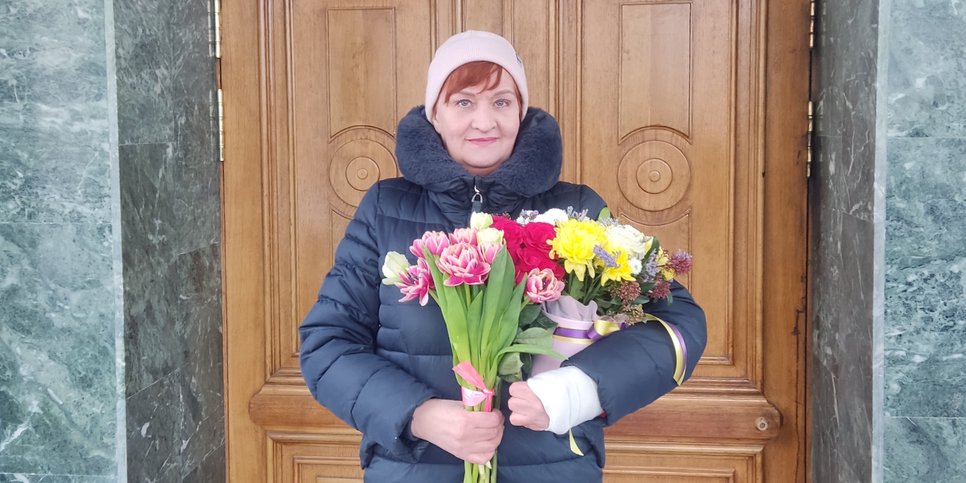Tatyana Obizhestvit is one of the three convicted on February 20, 2023, Kazan
Tatyana Obizhestvit is one of the three convicted on February 20, 2023, Kazan
Three of Jehovah's Witnesses Sentenced in Kazan. The Believers Received Various Terms of Imprisonment
TatarstanOn February 20, 2023, the Vakhitovsky District Court of Kazan found Tatyana Obizhestvit and the Bochkarevs guilty of organizing the activities of an extremist organization. None of those convicted pleaded guilty.
Tatyana Obizhestvit and Leysan Bochkareva received suspended sentences of two years and two and a half years respectively. Andrey Bochkarev was sentenced to three years and one month of actual imprisonment but was released in the courtroom because he already served this term in a pre-trial detention center.
For three believers from Kazan, it all started in January 2020, when Tatyana had guests at her home. An unexpected visit of security forces interrupted the friendly gathering. After the search, law enforcement officers took the detainees—more than 10 people—to the Department for Combating Organized Crime, where they were subjected to aggresive interrogation.
The criminal case was initiated by the Ministry of Internal Affairs in December 2019. The investigation lasted almost a year and a half. This whole time, including during the trial, Andrey was in a pre-trial detention center and the women were under house arrest. Thus, for more than three years, they were deprived of liberty without mitigation of the preventive measures, as if they were dangerous criminals.
In court, it became obvious that the case was based on false testimonies of secret witnesses and provocateurs. Witnesses for the prosecution contradicted each other and were confused about dates and events.
Andrey Bochkarev expressed his feelings about what was happening: “The Supreme Court of the Russian Federation made it clear that its decision of April 20, 2017, does not in any way prohibit the constitutional rights of citizens, including mine. I continue to have the right to 'freely choose, hold, profess and act in accordance with religious and other beliefs.' I think that the preliminary investigation agencies are incorrectly and arbitrarily interpreting the decision of the Supreme Court. And I sit on the court bench today, not because of a crime I allegedly committed, but because of their misinterpretation.”
Tatyana Obizhestvit expressed her firm belief that “this criminal case is the political repression of a religious minority—Jehovah's Witnesses. Unfortunately, in Russia anti-extremist legislation is being misused to persecute Jehovah's Witnesses for their faith.”
This situation is causing alarm in the global community. For example, the judgment of the ECHR dated June 7, 2022, states: “Considering the above elements and the sequence of events, the Court finds that the forced dissolution of all religious organisations of Jehovah’s Witnesses in Russia was not merely the result of a neutral application of legal provisions but disclosed indications of a policy of intolerance by the Russian authorities towards the religious practices of Jehovah’s Witnesses designed to cause Jehovah’s Witnesses to abandon their faith and to prevent others from joining it.” (§ 254)



